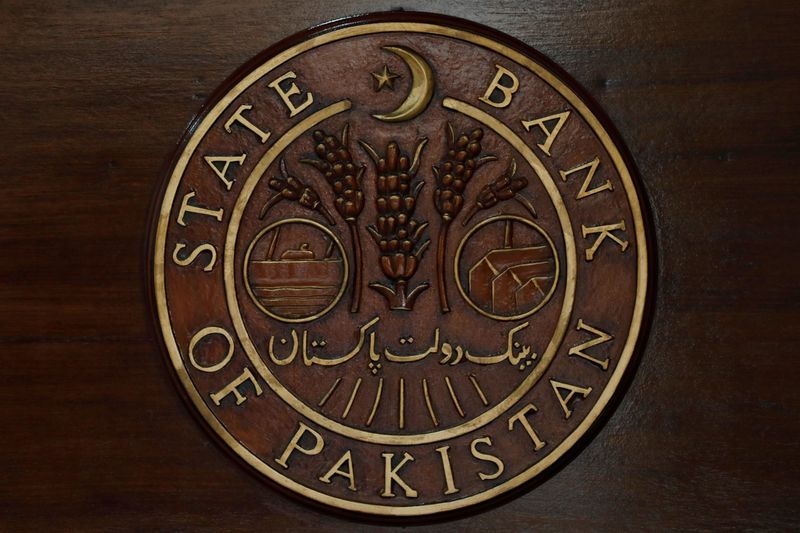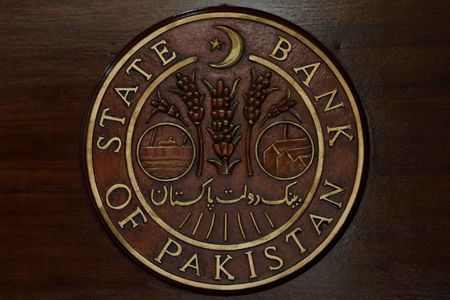By Gibran Naiyyar Peshimam
ISLAMABAD (Reuters) - Pakistan's central bank unexpectedly raised its key policy rate by 100 basis points to 16% on Friday to ensure high inflation does not get entrenched.
The move brings the State Bank of Pakistan's (SBP) 2022 hikes to 625 basis points. It kept the rate unchanged at its last two meetings in October and September.
GRAPHIC: Pakistan central bank's key policy rate - https://graphics.reuters.com/PAKISTAN-CENBANK/zjpqjkozgvx/chart.png
"This decision reflects the MPC's view that inflationary pressures have proven to be stronger and more persistent than expected," the central bank said in a statement after a meeting of its monetary policy committee.
SBP Governor Jameel Ahmad said at an analyst briefing afterwards that the tightening so far was enough to achieve its current objectives.
While the bank said inflation was likely to be more persistent than previously anticipated, it still estimated a drop toward the upper range of a 5-7% medium-term target by the end of fiscal 2024.
"Maintaining fiscal discipline is needed to complement monetary tightening, which would together help prevent an entrenchment of inflation and lower external vulnerabilities," the bank added.
A majority of respondents in a Topline Securities survey earlier this month forecast no change to the policy rate, and a cut by fiscal year-end in June 2023.
Pakistan's consumer price index (CPI) rose 26.6% year-on-year in October despite devastating floods and attempts to maintain fiscal discipline that have slowed the economy.
GRAPHIC: Pakistan retail inflation surges amid high energy costs - https://graphics.reuters.com/PAKISTAN-CENBANK/xmvjkoemypr/chart.png
Analysts at the post-policy briefing told Reuters that SBP Deputy Governor Murtaza Syed said the bank responded as inflation had moved beyond a transient shock in food and energy prices to show up in core inflation.
Syed also said the bank did not want high inflation expectations to become entrenched, and aimed to get ahead of broader pressures on the economy, they added.
"Looks like SBP is more concerned with rising inflation. Moreover IMF talks for next tranche is under way and is delayed, that may have also compelled the committee to take this step to fight inflation," Topline Securities' Chief Executive Mohammed Sohail said.
Pakistan's timely finalisation of a recovery plan from the floods is essential to support discussions and continued financial support from multilateral and bilateral partners, the International Monetary Fund (IMF) said on Wednesday.
"Too much emphasis on current inflation," Fahad Rauf, head of research at Ismail Iqbal Securities, told Reuters. "On a forward looking basis, inflation is going to head downwards."

He estimated a drop in November CPI to 24% from 26.6% in October. Economic activity indicators signal a sharp slowdown and another rate hike will do more harm than good by increasing the government's debt burden, hurting the private sector and causing higher unemployment, he added.
The SBP affirmed a Gross Domestic Product estimate of about 2% for fiscal 2023 and a current account deficit forecast of about 3% of GDP. However, it now expects higher food prices and core inflation to push average inflation to 21-23% instead the previous estimate of 18-20%.
